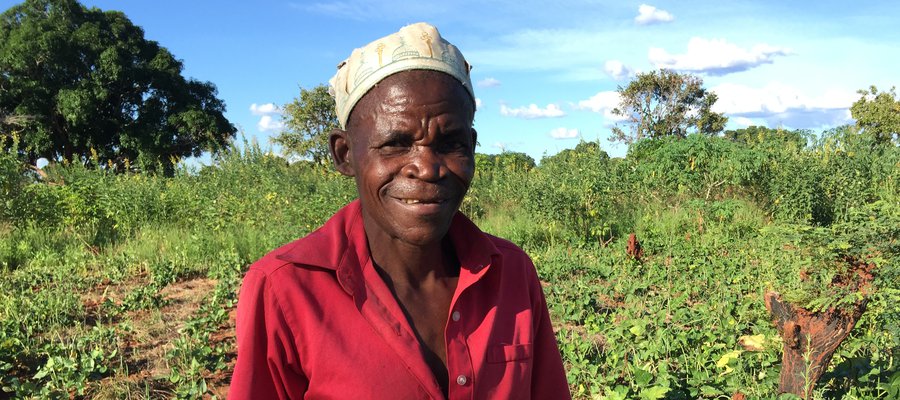Armando, an innovative farm owner

Armando is a 59 year old father living in Mozambique.
Armando worked hard to support and care for his family.
Armando spent his life selling his handmade weaving products and hunting wild animals all while raising his five children alongside his wife. He earned enough income to enjoy a happy life with his family, send his children to school, and eat a nutritious and balanced diet.
Armando’s life drastically changed in 2010.
In 2010, Armando tragically lost his wife and three of their children to disease. Suffering under the weight of grief, he found himself in a deep depression. Soon after, Armando’s living children married and moved into their own homes, leaving him alone. It was around the same time that Armando learned of his own illness, leprosy. Since those affected by leprosy often suffer from ulcers and injuries from nerve damage, they can be vulnerable to food insecurity due to reduced mobility and negative social attitudes. Armando was forced to rely on the care of his daughter to bring him a meal once a day as his illness progressed.
Through Food for the Hungry, Armando’s life has been transformed for the better.
In November 2016, Food for the Hungry began working with Armando through a programme aimed to improve livelihoods and food security for vulnerable people, including those affected by leprosy in rural Mozambique. Since joining the program, Armando’s life has been transformed. He began to feel like his life mattered and that he was empowered to earn an income for himself. Through the apprenticeships he had in the agriculture group, Armando opened his own farm where he has implemented the conservation techniques that he learned and now produces cassava, sesame, cowpea, pigeon pea, and peanuts.
Armando found a community that supports and accepts him.
Armando has forged an invaluable community that supports him and helps him with his farm when he’s too ill to complete his daily activities. He feels that the stigma around his disease is changing and more people are welcoming of him. Armando even participates in a local savings group where he can borrow money for the care he needs and has helpful technicians who care for him. Armando says, “I have learned that in life everyday is important, and we can’t fall into depression when we can still do something to change our lives. Besides, now I feel like a man because I can, with my own condition, produce something valuable for my life.”